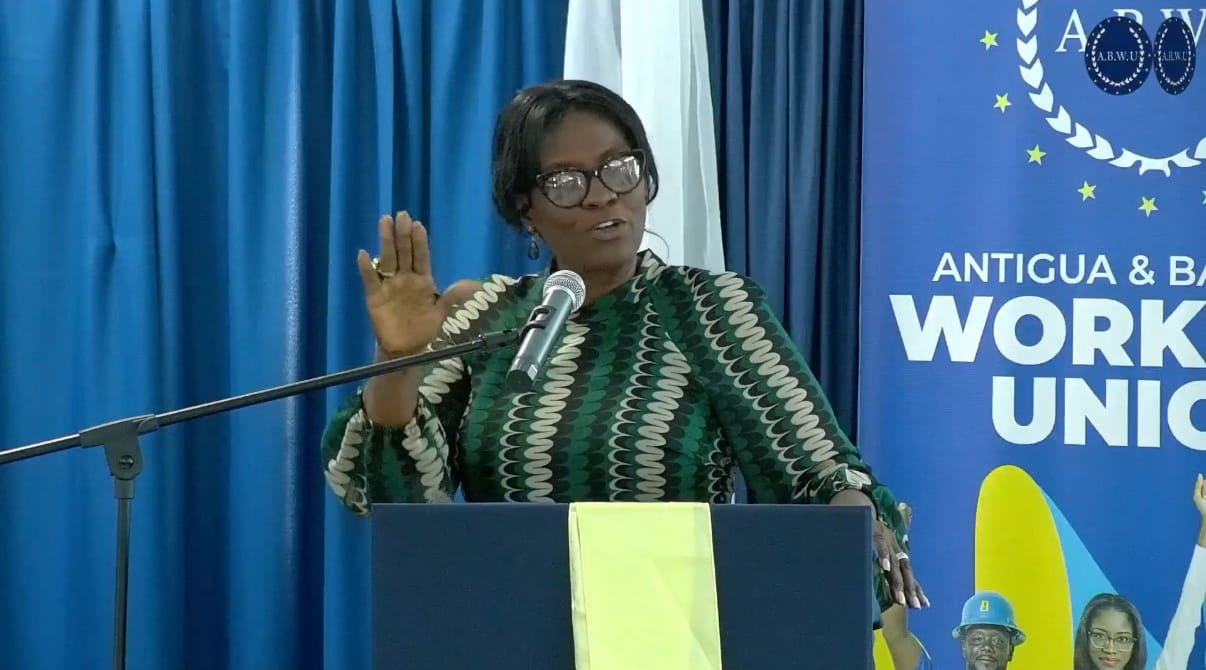

CLICK HERE TO JOIN OUR WHAT’S APP GROUP
Head of the UWI Five Islands Lifelong Learning Unit Paula Lee says education cannot be denied to incarcerated people, despite public outrage over prisoners graduating from the programme.
CLICK HERE TO JOIN OUR WHAT’S APP GROUP
Debate erupted on social media after it was revealed that inmates were among the 432 students who recently completed short courses at the campus.

Some commenters argued that certain offenders should be barred from classes, but Lee said the issue must be viewed through legal, emotional and academic lenses.
“There’s the legal, the emotional, and the academic,” she said, noting that imprisonment itself is the punishment. “We must never forget that families grieve, but these residents of the prison… their freedom has been restricted. That’s the punishment.”
She acknowledged the pain of victims’ families. “My baby daddy died tragically when you stabbed him… Somebody was raped… we must never, ever forget that what happened to them will impact them for the rest of their lives,” she said. “But then, there’s also the education.”
Lee warned that excluding inmates would violate the principle of access. “The United Nations speaks about education being a right… If we do otherwise, we’re discriminating and that’s a flaw in the realm of universities,” she said.

The Lifelong Learning Unit has accepted incarcerated students for years. Registration for its 2026 short courses is now open on the UWI website, with classes meeting twice weekly at the Five Islands Campus.
CLICK HERE TO JOIN OUR WHAT’S APP GROUP
CLICK HERE TO JOIN OUR WHAT’S APP GROUP
CLICK HERE TO JOIN OUR WHAT’S APP GROUP
CLICK HERE TO JOIN OUR WHAT’S APP GROUP
CLICK HERE TO JOIN OUR WHAT’S APP GROUP
CLICK HERE TO JOIN OUR WHAT’S APP GROUP
CLICK HERE TO JOIN OUR WHAT’S APP GROUP
CLICK HERE TO JOIN OUR WHAT’S APP GROUP
CLICK HERE TO JOIN OUR WHAT’S APP GROUP
CLICK HERE TO JOIN OUR WHAT’S APP GROUP
CLICK HERE TO JOIN OUR WHAT’S APP GROUP
CLICK HERE TO JOIN OUR WHAT’S APP GROUP
CLICK HERE TO JOIN OUR WHAT’S APP GROUP
CLICK HERE TO JOIN OUR WHAT’S APP GROUP
CLICK HERE TO JOIN OUR WHAT’S APP GROUP
CLICK HERE TO JOIN OUR WHAT’S APP GROUP
Advertise with the mоѕt vіѕіtеd nеwѕ ѕіtе іn Antigua!
We offer fully customizable and flexible digital marketing packages.
Contact us at [email protected]














Even the worst offender has to right to rehabilitation. I am uncertain why Antiguans think they must bring emotions into a practice that is done in prisons around the world. The punishment for crime is a custodial sentence, That’s why it’s referred to as paying a debt to society.
The prisoner must leave with enough education and life skills to not feel the need to return to a life of crime.
Rehabilitating a prisoner involves a multifaceted approach that includes educational and vocational training, behavioral and psychological programs, and support for re-entry into society. The goal is to help them develop skills, address offending behaviors, and build a foundation for a crime-free life after release. This includes treating addictions, improving literacy, learning job skills, and receiving help with practical matters like identification and finding work upon release.
All shall be dedicated end of story
Couldn’t agree more. Discrimination has no place in education, and policies must reflect that principle.
Oh just shut it, Paula! Just repeating what everyone else knows and have tried, administration after administration to implement. Show us tge side work. Have you or your department conducted any follow-ups to these efforts at “educating” the criminal minds already incacerated. Has there ever been some sort of tracking system put in place to guage the success/failure, relevance of our well-intentioned(?) lofty goals? In our local context, jail time should be less about creating two years of creature comfort to the criminal minds; far more time and resources should be spent on the rehabilitation of the VICTIMS of these criminals – victims who may never recover from their traumatic encounters with criminal elements in our society.
It does not matter what you say Paula, PRINGLE DOES NOT BELIEVE IN EDUCATION!!! He prefers to stumble in the dark, grasp at straws to find words in his confusing brain cells.
Comments are closed.